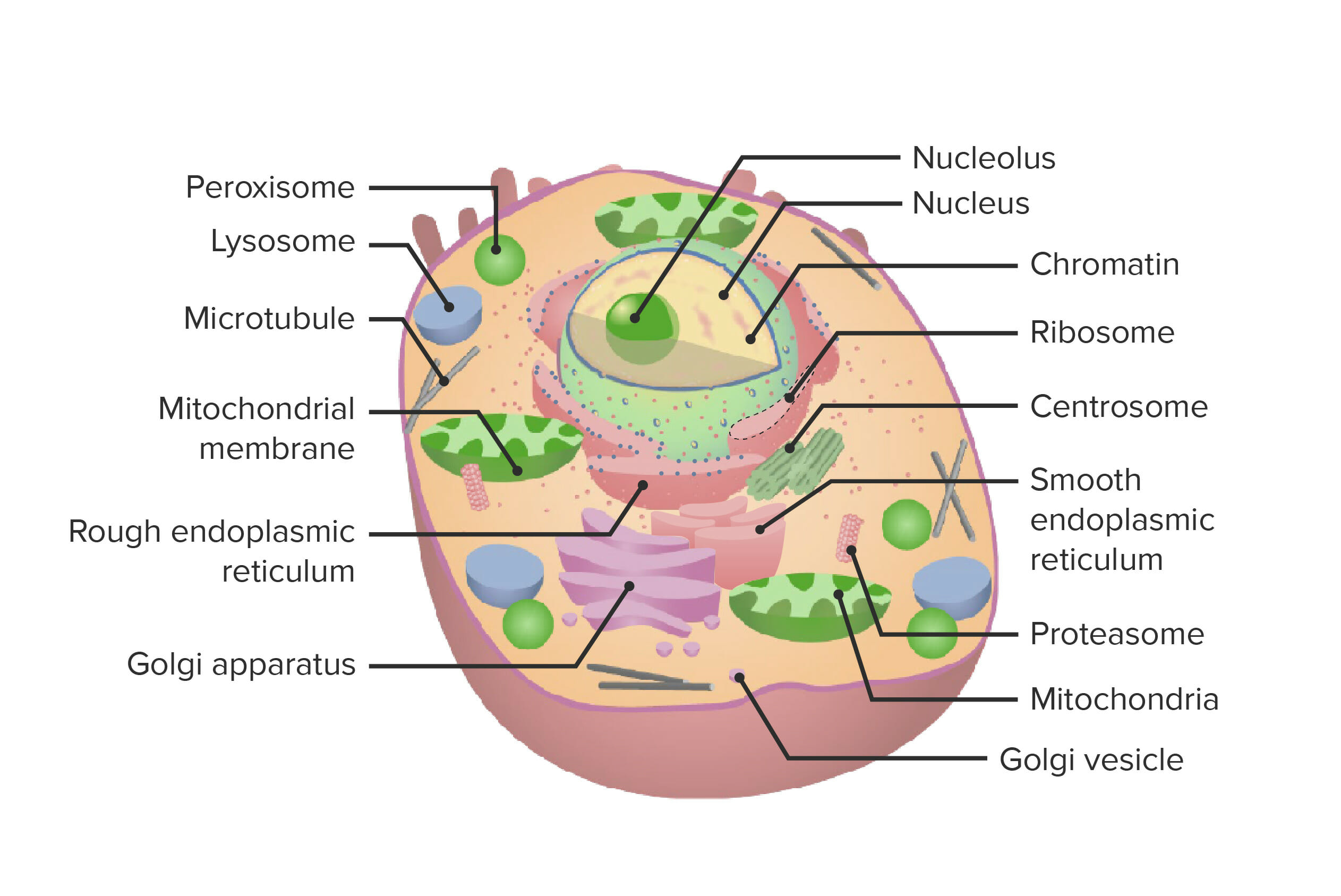Organelles are membrane bound compartments in Eukaryotic Cells in which specific prcesses occur. What’s a benefits of having organelles?

Key Points and Organelles
All cells have a plasma membrane, cytoplasm, ribosomes, and chromosomes. These are the minimum requirements for a cell to function.
However, there are many other organelles that can be present in a cell, each with its own specific function. Here are some of the key organelles found in Eukaryotic cells:
- Nucleus: The nucleus is the control center of the cell. It contains the cell’s genetic material (DNA) and is responsible for regulating gene expression and cell division.
- Mitochondria: Mitochondria are the powerhouses of the cell. They are responsible for producing ATP, the cell’s main source of energy, through a process called cellular respiration.
- Endoplasmic Reticulum (ER): The ER is a network of membranes that is involved in the synthesis and transport of proteins and lipids. There are two types of ER: rough ER (which has ribosomes attached to it) and smooth ER (which des not have ribosomes).
- Golgi Apparatus: The Golgi apparatus is responsible for modifying, sorting, and packaging proteins and lipids for transport to other parts of the cell or for secretion outside the cell.